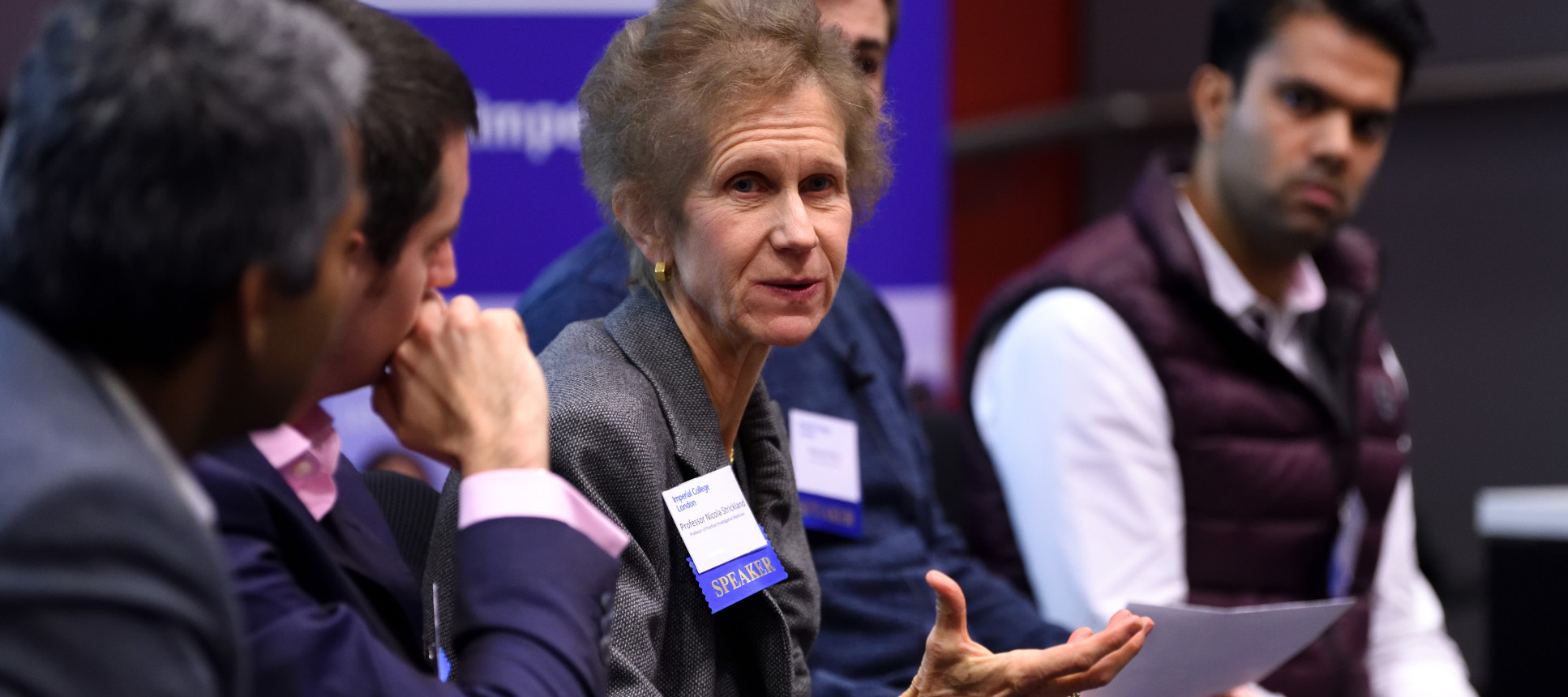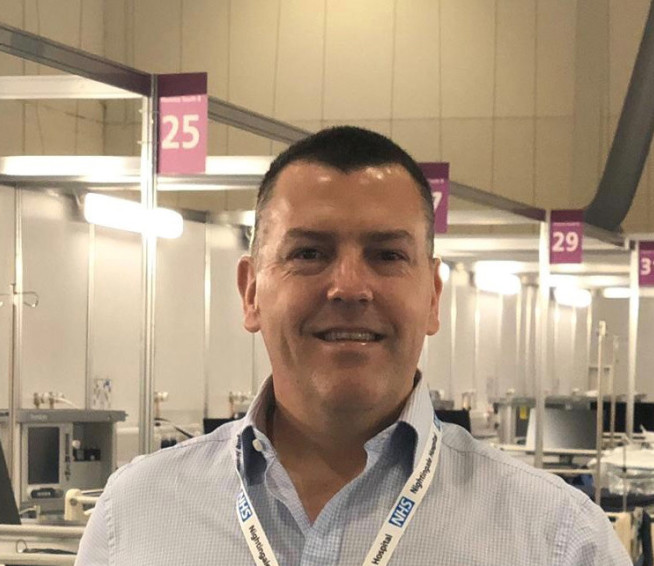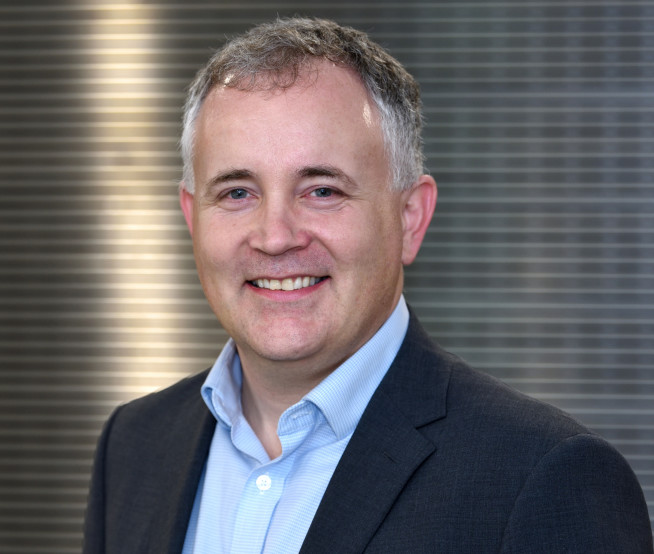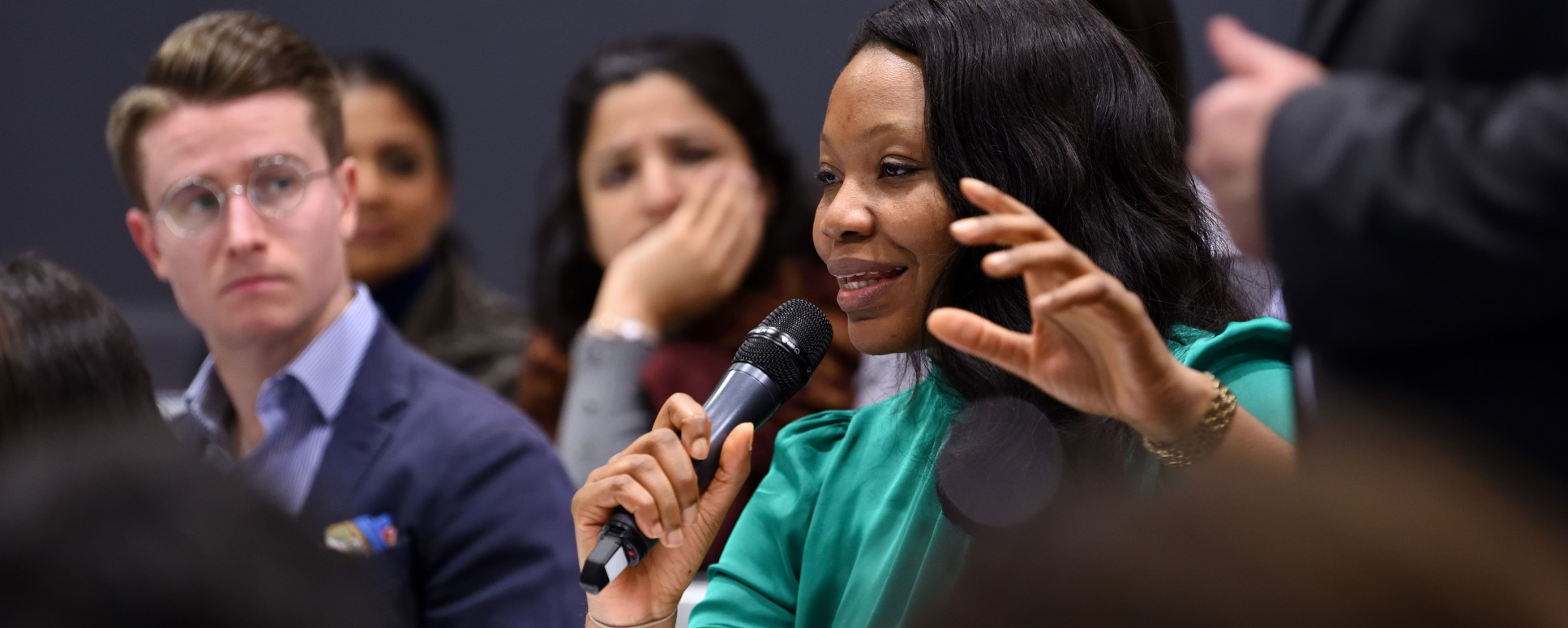
Working together
Meet the alumni behind the Healthcare Professional Interest Network
Michael Barker (MBA 2002), Dr Marcus Bradley (BSc Neuroscience 1993, MBBS Medicine 1996, Executive MBA 2019) and Dr Yasmin Razak (MBBS Medicine 2005) head up Imperial’s Healthcare Professional Interest Network. Ahead of the network’s first online panel event on obesity, we caught up with Michael and Marcus to find out more about their work and their plans for the network.
Founding a network
Keen to play an active role as an alumnus, Michael initially joined Imperial College Business School’s Alumni Advisory Board before launching a healthcare group with fellow alumnus Ian Manovel (MSc Health Management 2004) in 2010. The Healthcare Professional Interest Network aims to provide a platform for those with similar interests to come together and discuss today’s challenges.
When asked why the network is important to him, he responds, “I want to contribute: Imperial has a focus on lifelong learning. If other alumni want to join us, I’d say it’s a great experience. It makes you challenge the status quo. It takes hard work - we’re all busy, but you need to find the time to put the work in.”
Stepping up in a time of crisis
Michael:

Ten years ago, Michael completed his MBA at Imperial College Business School after making the big decision to move from clinical work, as a physiotherapist, to healthcare management. After graduating, he worked in a whole host of strategic roles before setting up his own healthcare advisory business.
He enjoyed many years of success working independently. But then the pandemic hit. “I knew the market had changed” he says, “Who would be focussing on strategy when they’re in survival mode?”
Before his MBA, Michael worked at Guys and St Thomas’ Hospital. He was one of the first consultant physiotherapists in the UK to work in intensive care. One of the many nurses he worked with was Eamonn Sullivan who went on to become Chief Nurse for hospitals across London.
Michael explains, “At the beginning of the pandemic, I heard he was the Chief Nurse at the London Nightingale hospital. I explained to him I was only three stops away from the ExCeL and asked what I could do to help.” The next thing Michael knew, he was appointed Head of Physio.
Michael thrived as he jumped back into a clinical leadership role. It gave him the chance to reconnect with old colleagues, but also work with new people. He explains, “There was a constant connection between the clinical and the operational side. Unlike any hospital system I’ve known, the two teams met every day. We discussed what we had learnt and what needed to change.”
"Working at the Nightingale hospital was a very powerful experience. It reconnected me with the clinical world that I left 10 years before. The camaraderie, learning and staff culture was fantastic. It had the best of everything you want in healthcare in one place. Clinicians came from everywhere to play their part."
He describes it as “being part of something incredible”. “We were all learning how patients were responding to treatment. But it was hard, of course. Many patients would come in sedated. Despite never exchanging any words, when we lost someone it was very emotional.”
Marcus:

Marcus has had a long association with Imperial since becoming an undergraduate medical student at St Mary’s Hospital Medical School in 1990. His medical career has been strongly neuroscience-focused, culminating in his current role as a Consultant Interventional Neuroradiologist in Bristol, where he has been instrumental in the development of services for stroke.
In 2019, Marcus graduated with an Executive MBA from Imperial College Business School, having made a decision made to pursue healthcare leadership and industry roles that would have a wider impact on patient health. Marcus now heads up the Imaging Department in North Bristol NHS Trust with a central role in strategic planning of regional diagnostic services and implementation of a digital transformation programme.
“The pandemic completely changed the landscape and has tested us in ways we could not have imagined until last year” Marcus explains. “There has been a need to keep acute services running at the same time as ensuring patients and staff are safe. It has been an exercise in servicing the engine whilst the plane is flying. Actually, it has been more like trying to change the engine.”
Marcus recalls the experience of dealing with so much uncertainty when everyone was looking for some direction and answers, but so little was known about the disease. “Every decision would be challenged as new information came to light and we had to strike a fine balance between being agile and consistent.” He recalls that keeping everyone up to date when everything was changing so quickly required a great deal of effort, but this also strengthened the connections between the staff as there was ultimately a single goal.
“This has been a highly complex task in risk management. We have been wrestling with very difficult decisions about prioritising care with the resources available. The first lockdown made a huge difference by freeing up staff from elective work to support the acute services, but this created an eerie feeling right at the start before the first wave hit.”
"The Nightingale Hospital was an amazing experience in creating a network of field hospitals using the combined expertise of NHS staff, the military and the private sector."
New challenges
Michael:
Michael’s experience working at the Nightingale hospital made him consider whether to let go of consulting and consider his options. It didn’t take long for an opportunity to come his way. Thanks to connections he made at the Nightingale hospital, he secured his first non-executive director position at a charity called Care City in East London. Since working at the Nightingale hospital, Michael has also been working for the Department of Health on Test and Trace.
Marcus:
Marcus has been keeping an eye on the longer-term goals. As a consequence of the pandemic, there have been dramatic transformations to the working environment and faster progress has been made in preparing for the future. Marcus is now considering where to direct his energy in this changing landscape and looking at new opportunities where innovation will transform healthcare. He is now also a trustee of the Joint Neuroscience Council, a charity with a goal of connecting and educating in the neurosciences.
Events encouraging debate

Before the pandemic, the Healthcare Professional Interest Network was running two events a year. The events focussed on a contentious issue with three or four people on the panel arguing their perspective – either defending or rejecting a statement. Past event topics include, ‘The state of mental health in the UK: Where are we going wrong?’ and ‘The A&E Crisis – Failure of leadership, media molehill or symptom of creaking NHS?’.
"The audience for our events is predominantly alumni. But we extend invites to our networks in industry, MedTech, clinical groups and beyond. We’ve even had some sixth form students join us as a teacher had heard about the event."
Their first online event, held in May, asked big questions around the obesity crisis, one of the most visible yet overlooked public health problems. Watch the recording on our YouTube channel.
Past events have focussed on audience interaction – and this webinar will be no different. “Each panellist will have five to ten minutes to put forward their argument”, he explains. “It’s not a case of people just listening to professionals endlessly talk. Over half of the session will be dedicated to a Q&A – that’s what adds value to events.”

Contact us about professional interest networks
Kellianne Bartley
Alumni Engagement Officer
+44 (0)20 7594 2870
k.bartley@imperial.ac.uk